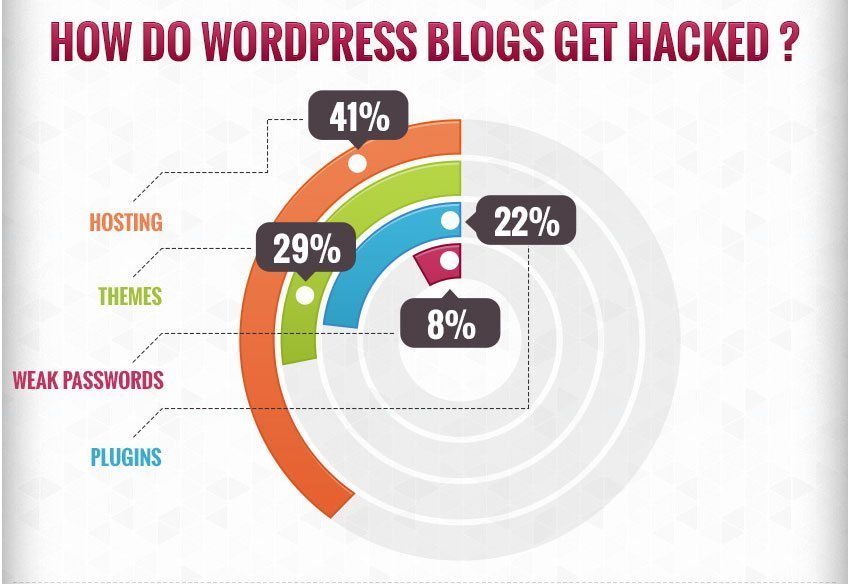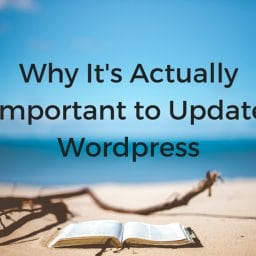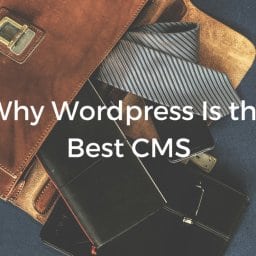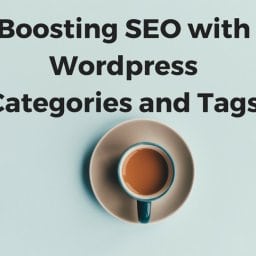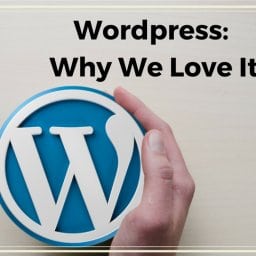When it comes to website hosting and security there are plenty of options out there. From basic to premium, the levels and plugins vary and it can be an overwhelming task to take on. Who should I trust? What options do I need? Why should I even bother with WordPress security in the first place?
Most choose what they deem the most cost-effective route, and don’t consider security at all. After all, who’s going to target my site anyway, I’ll notice if something goes wrong, any hosting provider should provide some level of security, right?…..WRONG. What you thought was the most cost-effective route ends up costing you a great deal. Especially when working with WordPress, people assume it’s a secure platform with no needed “extras” to ensure their site’s security. Yes, WordPress is a great platform but it can’t work all on its own, but added layers of security are the best way to protect your investment.
Sourcing info from the article Should you pay for WordPress security? 8 factors to consider, let’s take a look at some common myths people have about website security.
Myth #1 – I don’t need to pay for extra security
Getting by with nothing or very little only works until something actually happens, then it ALL comes crashing down! There are free plugins that have some great benefits to them however, they don’t cover everything. “You might not even know that you have a problem. The signs that your site got hacked can be subtle, so you might not even know that you need a solution.
Aside from that, a lot of the day-to-day work security solutions do is usually invisible. It’s only when you turn on notifications and check your reports that you notice how often someone tried to log into your site.
For that reason, WordPress security is one of those areas where an ounce of prevention can be worth a pound of cure. Even if you don’t see the benefit right away, it is definitely there.
Myth #2 – My site is too small to get hacked.
It doesn’t matter if you have a small DIY site just for personal use or a multifaceted E-commerce platform for nationwide use. Most “hackers” are automated machines working 24/7 to gain access into any weak point they can find, for no given reason. The hacking possibility is equal for all. In fact, a smaller site may run a slightly higher risk due to lack of attention. A weak password, hosting platform or the theme used can play a big part in your hacking risk.
“Most often hackers are not interested in the information on your site. Instead, they use your site to spread malware, redirect visitors to phishing sites or take over your server resources. So, even if you don’t think it makes sense to be a target, the mere existence of your site makes it one.”
Myth #3 – My IT Team will be able to fix it.
If something does happen, I have my hosting provider and webmaster to back me up and get things back in order….Not always the case. If you do have a supportive and knowledgeable team backing your site, odds are in your favor that your site will be safe and sound with minimal time required to fix it. However, if your hosting is the bare minimum and your webmaster simply built your site from a DIY program, you might as well be running things yourself. When a hacking incident occurs, all the “savings” you’ve had over the years with free plugins and little to no cost in development will quickly come back to haunt you as you spend endless hours trying to recover your site.
What happens now?
You’re now finding yourself in an undesirable situation of contracting outside help and likely searching for new hosting solutions. You run the risk of not being able to recover your site and all the contents within it. You’re losing revenue each day your site is down and not reaching potential leads. Having a site down can lead to no return traffic as negative first impressions are lasting. Worst case scenario, your site is too far gone and you have to invest in a complete redesign. Running up costs for the work done to try and fix the old site as well as the new investment to rebuild could wipe you out entirely.
And, “it’s not just consumers who may lose faith in you, Google may as well. If your site is infected by malware, redirects visitors to spam sites or similar, it can quickly land you on the Google blacklist. This will, at the least, add a warning next to your search results to let users know about potential danger.”
Myth #4 – In the end, it’s just me and my site at risk so I’ll deal with it if it happens.
“Depending on how well protected your site was to begin with and the data that gets lost, being hacked can also have legal ramifications. If hackers get away with highly sensitive consumer data lawsuits can follow. It did in the cases of Target and Equifax. At least the former paid almost $20 million to settle the damages.
As is visible from the recently introduced GDPR regulations, the landscape is shifting more and more towards online consumer protection. Under the new laws, at the very least you will be required to report when a breach has happened and private data has been exposed.
However, if hackers access sensitive data through your system, it’s also possible that you will be held responsible financially. Same if someone’s computer was infected from your website. So, be aware of that.”
All of this can be avoided with the right security, so why wouldn’t you have a plan in place?
We offer multiple levels of support for our clients that may be just what you need.
Our “Just the Basics” package is designed for organizations concerned about web security, but already have web hosting with a different company. Even if you host with a small firm or big box web host, we can still monitor the health of your website and help when issues arise.
Check out our maintenance packages:


